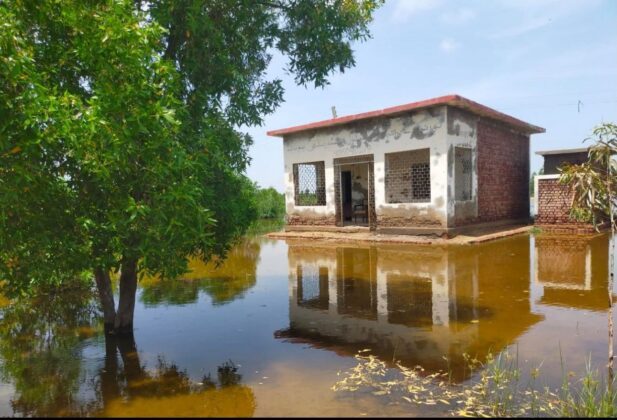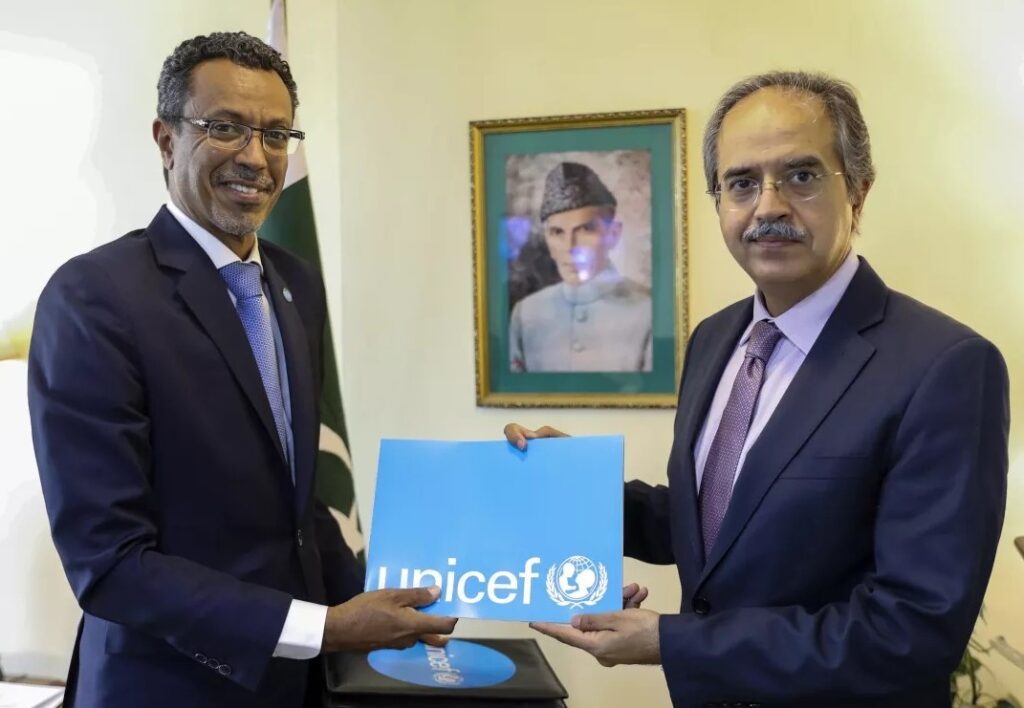UNICEF Representative in Pakistan Abdullah Fadil expresses concern over the repeated climate shocks that are barring children from their education, urges immediate action for climate-resilient education

By Saima Baloch
ISLAMABAD: The monsoon floods ravaging Sindh have had a devastating impact on children, with over 230,000 students affected by school closures and extensive damage to educational infrastructure. According to the latest figures from Sindh’s Education Department, more than 1,300 schools have been damaged, with 228 completely destroyed and over 450 rendered non-operational due to standing floodwaters.
The severe flooding has not only disrupted children’s education but also claimed lives and displaced families. Since the onset of the monsoon season on July 1, floods have led to 76 deaths across the province, half of whom were children. The floods have submerged homes in 10 districts, displacing around 140,000 children and their families.
UNICEF Representative in Pakistan, Abdullah Fadil, expressed concern over the repeated climate shocks that are barring children from their education. “From heatwaves to floods, children are repeatedly being locked out of learning due to climate shocks. Pakistan, already in the grips of an education emergency with 26.2 million children out of school, cannot afford more learning losses,” he stated. Fadil emphasized the urgent need for the rainwater to subside so that children can return to their classrooms, but also warned that prolonged closures might make it less likely for them to resume their education.

File Photo: UNICEF Representative in Pakistan, Abdullah Fadil photographed with a Pakistani official.
UNICEF teams are actively conducting rapid needs assessments and coordinating with government and local partners to address both immediate and long-term needs. Their efforts focus on restoring education access and facilitating early recovery for the affected communities. The situation is dire, as Sindh, still reeling from the catastrophic floods of 2022, faces yet another extreme weather event that has once again devastated critical infrastructure.
Fadil called for urgent investment in climate-resilient education and services for children. “We need to build a coalition of partners to innovate, adapt, and mitigate in this climate-vulnerable country and find lasting solutions for children in a changed and changing climate,” he added. Pakistan’s position as the 14th most affected country on UNICEF’s Children’s Climate Risk Index (CCRI) underscores the critical need for enhanced climate adaptation strategies to protect children’s health, education, and futures.



